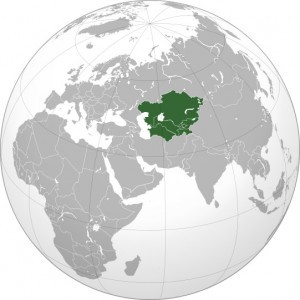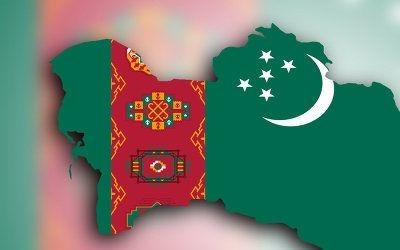BISHKEK (TCA) — The Times of Central Asia presents to its readers Stratfor’s Global Intelligence, a weekly review of the most important events that happened in the world — from Europe to Middle East to Russia to Central Asia to Afghanistan to China and the Americas.
The Week That Was
The Putin State
Russia’s parliamentary elections on Sept. 18 set the stage for President Vladimir Putin to proceed with consolidating power against his Kremlin rivals. Voter turnout was low, but United Russia won a super-majority in the lower house, the state Duma. Even without strong public endorsement, Putin now has the mandate he needs to run for a fourth term in 2018, drive through pending budget cuts and proceed with some big changes to the Russian security apparatus. On Sept. 19, rumors surfaced that Putin plans to create a mega-ministry to oversee security — ominously called the Ministry for State Security (MGB) (this is the same name Soviet leader Josef Stalin gave to his own superministry.) The MGB will pilfer parts of all other security services (the Federal Security Service, the Federal Protective Service, the Foreign Intelligence Service), the Interior Ministry, the Defense Ministry and the Prosecutor General’s Office, placing an extraordinary amount of control directly in Putin’s hands. Along with his personal military (the National Guard), Putin is no longer putting energy into balancing between clans and political factions. He is focused on consolidating power under himself at a time when powerful Kremlin elites still have a number of ways to push back.
A Disastrous Cease-fire Attempt in Syria, Incremental Progress in Ukraine
The Syrian cease-fire rapidly crumbled this week, leaving plenty of egg on the faces of U.S Secretary of State John Kerry and his Russian counterpart, Sergei Lavrov. From the point of view of Syria’s government and its Iranian backers, the cease-fire period is more an opportunity to push for further gains on the battlefield than it is a viable path toward a political resolution at this point. Meanwhile, the acrobatics that Russia performed to try and dodge blame for a Sept. 19 attack on an U.N. aid convoy were head-spinning. Everyone knew there would be limitations on the cease-fire mediators in getting forces on the ground to hold fire for a few days, but the resounding failure of the latest effort will only damage the credibility of Moscow and Washington in the eyes of the rebels who cannot reasonably be expected to sever ties with groups like Jabhat Fatah-al Sham when the battlefield remains this volatile.
Washington will still keep Moscow in dialogue to try and mitigate greater interference in the fight against the Islamic State, but a sustainable cease-fire in Syria is beyond reach for now.
Turkey is also frustrated over the United States’ continued support for Kurdish People’s Protection Units (YPG) in preparation for the battle against the Islamic State for Raqqa. Turkey is trying to draw a red line by saying it will not participate in Raqqa unless the United States drops the YPG. However, the United States does not require Turkey’s full involvement and will continue to rely on Kurdish proxies east of the Euphrates while keeping close to Turkish forces west of the river. Turkey also reached a “gentlemen’s agreement” to deconflict Syrian airspace with Russia this week, but still needs to keep close to the United States to avoid any unwanted collisions with the Russians. The balancing act on all sides continues.
While Russia’s credibility took a hit in Syria, some slow but significant progress is being made in Ukraine. On Sept. 21, representatives from Ukraine, Russia, and the Organization for Security and Co-operation in Europe (OSCE) reached an agreement in Minsk for Ukrainian and separatist military units to withdraw with their weaponry at specific points along the line of contact in eastern Ukraine. While several cease-fire agreements have been made — and broken — between Ukrainian and separatist forces since the conflict began in 2014, this particular agreement stands out in terms of its specificity. Rather than agreeing to a blanket cease-fire, the latest deal applies only to three specific areas of dispute — the Luganskaya, Zolotoye and Petrovskoye settlements. Also, rather than just a cessation of hostilities or withdrawal of particular heavy pieces of military equipment, the agreement requires Ukrainian and separatist forces, along with their weaponry and military vehicles, to withdraw one kilometer each from the line of contact in each of these areas. The agreement entails a 13-day deadline for weapons and forces to withdraw and an OSCE presence to monitor violations of the agreement as well. The incremental approach will make it easier for Russia to claim cooperation and progress, while applying steady pressure on the Europeans to prepare Kiev for political concessions.
Tremors in the German Coalition, More Talk of Treaty Change in the EU
The past week began with another poor performance by Germany’s ruling Christian Democratic Union (CDU) party in a regional election, this time in Berlin. It was the fifth time this year the party led by Chancellor Angela Merkel lost support in a German region compared to the previous election. Once again the far-right Alternative for Germany (AfD) party performed strongly, and managed to enter another regional parliament. Germany’s general elections are still a year away, but some members of the CDU are starting to debate internally whether they could form an alliance with AfD. The AfD is a minority party for now, but the debate itself will be important to track to see if the CDU considers a more Euroskeptic path to retain voters. Should Berlin move further away from integration efforts and become less tolerant of the spending habits of the southern Mediterranean belt, it could have drastic implications for the European Union. Meanwhile, the Visegrad Group (Czech Republic, Hungary, Slovakia and Poland) is working on a proposal for EU treaty change. So far, they only want to weaken the central institutions in Brussels and repatriate powers to national governments. Migration, in particular, is an area where several EU members are clamoring for stronger national jurisdiction. The core EU powers in Paris and Berlin will be extremely wary of treaty change though, knowing that there is no limit to what countries will demand as the Continent continues to fragment.
Japan Strives for Qualitative Easing
The Bank of Japan announced Sept. 21 the latest moves in its long-running struggle to stimulate inflation in the Japanese economy. Unlike previous increases in bond-buying and unprecedented moves into negative interest rates, the latest decision was less about direct action and more about stated intentions to limit collateral damage. The shift in focus from buying bonds in quantity (or quantitative easing) to trying to achieve a specific bond yield through purchases was a recognition of the damage done to Japanese banks’ profitability by negative interest rates. It was also a seemingly tacit admission that the days of bond-buying “bazookas” are all but over, with the Bank of Japan already on an unsustainable course with its existing program. The other Sept. 21 announcement was that the Bank of Japan’s inflation target moved from 2 percent to “over 2 percent” while removing the target date of reaching that goal. This kind of open-ended target is novel for central banks, but with the markets having seemingly ignored the Bank of Japan’s target in recent years, and with the central bank appearing constrained in the actions it can take, the new target can probably be somewhat discounted. The yen rose off the back of the announcements, adding fuel to the widespread feeling that the days of central bank policy driving global markets are coming to an end.
A Thwarted Referendum in Venezuela
Stratfor has said that the Venezuelan government will exercise its influence over the National Electoral Council to stall or outright stop a recall referendum against President Nicolas Maduro this year. That forecast was confirmed this week when the National Electoral Council said that now the opposition has to collect the signatures of 20 percent of registered voters in every state in just three days, from Oct. 26-28, pushing the referendum saga into next year. Maduro, and those government elites around him who know that losing power means possible extradition to the United States, have so far been effective in getting the opposition to jump through hoops over the referendum. We now need to watch to what degree the opposition can actually unite in determining its next steps. The government has gained some time, but it still has to contend with the possibility of mass demonstrations that could turn violent and compel a major figure like Venezuelan Defense Minister Vladimir Padrino Lopez and other ruling party dissidents to intervene against the president.
A Shift in Chinese Lending Activity
Data on Chinese lending activity in August pointed to potentially important changes underway. Of particular note were signs that lending to the household sector — mostly for mortgage loans for home purchases — rose nearly 50 percent from the month before, continuing a trend of consistent gains over the past two years. Historically, most Chinese citizens financed home purchases through personal and family savings, not through loans. If the trend is sustained, China’s property sector could begin to more closely resemble that of the United States prior to the 2007-08 financial crisis.
Full Articles
A Referendum to Reheat Bosnia’s Frozen Conflict
Two decades after the end of the Bosnian war, tensions in the country are once again on the rise. In Republika Srpska, one of Bosnia-Herzegovina’s constituent substates, the government has scheduled a referendum on whether to continue observing its Statehood Day on Jan. 9. Even though a Bosnian court outlawed the vote, Republika Srpska plans to forge ahead. Although on the surface the Sept. 25 vote appears to concern a relatively minor issue, it illustrates that in the more than 20 years since the war’s end, Bosnia’s conflicts have not been resolved but merely frozen.
The Unseen Revolution in Chinese Finances
New data from China’s National Bureau of Statistics suggest that sweeping changes may be taking place in the country’s financial system, though largely away from the public eye. On Sept. 14, the bureau reported that Chinese banks and financial institutions lent nearly 950 billion yuan ($142 billion) in August — more than double July’s amount. During the same month, formal and informal lending activities collectively totaled 1.47 trillion yuan, nearly triple that seen in July. Investment, however, has failed to keep pace with the boom in lending, especially in real estate construction, which has long been an important driver of economic growth in China.
In many ways the agency’s figures appear to be unremarkable. Upon closer inspection, though, they point to an impending transformation in the Chinese economy that could come with as many risks as it does rewards.
The Source of India’s Water Wars
Rivers sharing boundaries, whether between other countries or internal states, are traditional points of conflict. Often governed by unpopular treaties, they are the subject of intense negotiations. India’s transboundary rivers are no exception. Political disputes surrounding India’s rivers are made all the more contentious by water stress and scarcity. Growing populations, increased use of groundwater, pollution and general mismanagement of existing resources will constrain India in the long term. And because of a fragmented geography and political system, improved water management policies are difficult to implement.
Weak monsoon seasons in recent years have made water stress in India more apparent. Even in this normal monsoon season, some of the country’s basins have experienced deficits, including the Cauvery Basin in southern India. On Sept. 5, India’s Supreme Court directed the state of Karnataka to release water amounting to roughly 425 cubic meters per second to neighboring Tamil Nadu state. Though the amount has since been reduced to 300 cubic meters per second, the rulings prompted violent protests across Karnataka state, where Bangalore (India’s foremost information technology hub) is located.
Asia’s Aviation Sector Reaches New Heights
The global economy is in the midst of a change. Market demand and consumption — once monopolized by the West — are becoming more dynamic in the Asia-Pacific region, altering demand patterns and enlarging the consumer market across a host of sectors. As China and Japan look for ways to capitalize on this trend, they are turning their attentions to the skies. Civilian aviation is taking off in the region: Boeing projects that in the next 20 years, China will overtake North America as the world’s largest air-traffic market. Meanwhile, the global aviation industry is predicted to need more than 28,000 narrow-body passenger jets to meet rising global demand. This represents a significant opportunity that China and Japan are unwilling to pass up, and both have targeted the aviation industry as a key sector to move into to promote economic growth.
India’s Partnership With Southeast Asia Nears Its Limits
India has a long history with Southeast Asia. The country’s influence remains visible throughout the region, from the Indian diaspora communities in Kuala Lumpur to the ancient Hindu temples in Jakarta. Some Southeast Asian nations owe their very names to India; Indonesia, for instance, means “Indian islands.” Now, it seems that India hopes to renew its sway in Southeast Asia. In the span of one week, Indian Prime Minister Narendra Modi hosted the president of Myanmar, made his first trip to Vietnam and attended the 14th annual India-Association of Southeast Asian Nations (ASEAN) Summit in Laos. The spate of engagements demonstrated Modi’s intention to deepen New Delhi’s presence in Southeast Asia, an achievement that will be easier said than done.
The Week Ahead
Oil Producers Meet in Algiers
OPEC member and non-member states will convene in Algiers on Sept. 26-28 to scope out a coordinated freeze in oil production. In the week leading up to the long-awaited summit, rumors circulated that Saudi Arabia would be willing to cut production from its August levels (10.6 million barrels per day) to pre-summer levels (10.2 million to 10.3 million bpd) if Iran were willing to freeze production at 3.6 million bpd. A number of denials followed the rumor. Nonetheless, a substantial amount of oil could potentially return to the market in the near future and depress prices further. Production from Forcados and Qua Iboe, Nigeria, could return, adding 500,000 bpd to the market (Qua Iboe’s loading plan for October is 275,000 bpd). Iraq’s North Oil Company deal has also added 100,000 to 150,000 bpd and Libya has already increased its production by roughly 200,000 bpd with more fields returning to production as Gen. Khalifa Hifter works to consolidate control in the country’s east. Collectively it is a potential increase of 850,000 bpd, and that does not even include the planned startup of Kazakhstan’s Kashagan oil field in October and U.S. production, which has stabilized around 8.5 million bpd since July. To meet summer demand, Saudi Arabia increased its production by around 400,000 bpd, leaving room for the country to cut production should prices plunge below $35 a barrel. Even if Iran continues to resist a coordinated freeze at the upcoming meeting, Saudi Arabia could still move toward a freeze and see how prices respond.
Monitoring the Balkan Tinder Box
Two decades after the end of the Bosnian war, the troubled Balkan country is dealing with political and ethnic frictions again. On Sept. 25, the Serb-led Republika Srpska (one of the two entities that make up the country) will hold a referendum that challenges the authority of Bosnia’s Constitutional Court and is seen by many as a prelude to secession. The European Union and the United States criticized the referendum, but Putin received Republika Srpska President Milorad Dodik in Moscow this week, clearly signaling his support for the Serb entity — a move that will make EU and U.S. officials nervous. The Balkans will have to be watched closely in the coming weeks. In addition to the stresses rising in Bosnia, Russia may see an opportunity to poke the United States and Europe in another theater where Russian involvement would make a difference in containing — or facilitating — ethnic-motivated violence.
FARC Peace Deal Signing and Demobilization to Begin
Colombian President Juan Manuel Santos and Revolutionary Armed Forces of Colombia (FARC) leaders will sign a peace treaty in Cartegena on Sept. 26. The following days will consist of lobbying ahead of the Oct. 2 plebiscite vote on the peace agreement. The ‘yes’ campaign is making headway in Colombia’s major urban areas, including among those who are skeptical of the deal. According to a recent Gallup poll, almost 70 percent say they will vote for the ‘yes’ campaign while less than 35 percent say they will vote ‘no.’ Following the signing of the peace agreement, the government will send an amnesty law to Congress to formally enact the amnesty aspects of the peace accord. FARC militants will then start moving to demobilization zones to disarm. Once demobilization is underway, how much the smaller National Liberation Army (ELN) is able to occupy areas formerly held by the FARC in parts of Cauca, Antioquia and Narino departments and to what degree the group is able to absorb dissident FARC units will become clearer.
Russian Budget Battle
Russia’s Finance Ministry will hold several budgetary meetings next week, as the battle over the 2016 and 2017-2018 budgets commences. The Finance Ministry has to find a way to plug a $36 billion hole in this year’s budget, with few options: drain the reserve funds, privatize state firms (like energy giant Rosneft) and cut further spending. For the 2017 budget, the ministry is expected to introduce a new tax structure of the oil industry. Currently, the budget receives oil rents through income tax, export tax and mineral extraction tax (MET). The plan is to increase the mineral extraction tax, while possibly decreasing the export (from 42 to 30 percent) and income taxes — moving the burden from export to extraction. In addition, the ministry is proposing a 70 percent profit-based tax on positive cash flows from oil projects. The proposal will receive big pushback from elites tied to the energy sector. The last time the subject was raised, Rosneft threatened to cut oil production. With Rosneft already under pressure to privatize, it will add to the struggle between Rosneft chief Igor Sechin, the Finance Ministry and Putin.
Niger Delta Dialogue
Nigeria’s government is moving forward with its scheduled Niger Delta dialogue, to be held Sept. 26-27 in Abuja. In the run up to the meeting, political leaders in the restive oil-producing Niger Delta region, which has experienced a spate of attacks on oil and natural gas infrastructure since January 2016, have engaged in intense meetings to devise a united action plan for the event. Yet there may be inherent problems in the dialogue. While it will discuss potential regional solutions with President Muhammadu Buhari’s administration, the Niger Delta Avengers (the group that has claimed the vast majority of attacks) have made previous statements calling for the cancellation of the event. Specifically, the Niger Delta Avengers said that the individuals that the federal government were bringing together were not the “right persons” and that the militant group wanted others, namely Nobel Prize laureate Wole Soyinka and Anthony Ani. Consequently, it will be important to watch if anything concrete emerges from the dialogue (besides simple words). If the Niger Delta Avengers or other groups carry out more attacks, it would underscore that the demands of the militants were not met and that the federal government is likely far from solving its militancy issue.
Duterte Heads to Vietnam
Philippine President Rodrigo Duterte will visit Vietnam on Sept. 28-29. The trip — combined with his possible upcoming trip to China and Japan in October — hints at the emerging balance act in his foreign policy. Vietnam and the Philippines are vocal opponents to China’s maritime expansion, but their overlapping claims in the Spratly Islands largely prevent the two from seeking closer ties. However, because his first visit to Vietnam comes shortly after the international court ruling on the South China Sea in July, Duterte will demonstrate he can put aside bilateral tensions and seek economic and political cooperation. Both sides may also discuss some bilateral arrangement in the maritime security, but Duterte will likely carefully manage the agenda and preserve the conciliatory mood with Beijing ahead of his visit.









